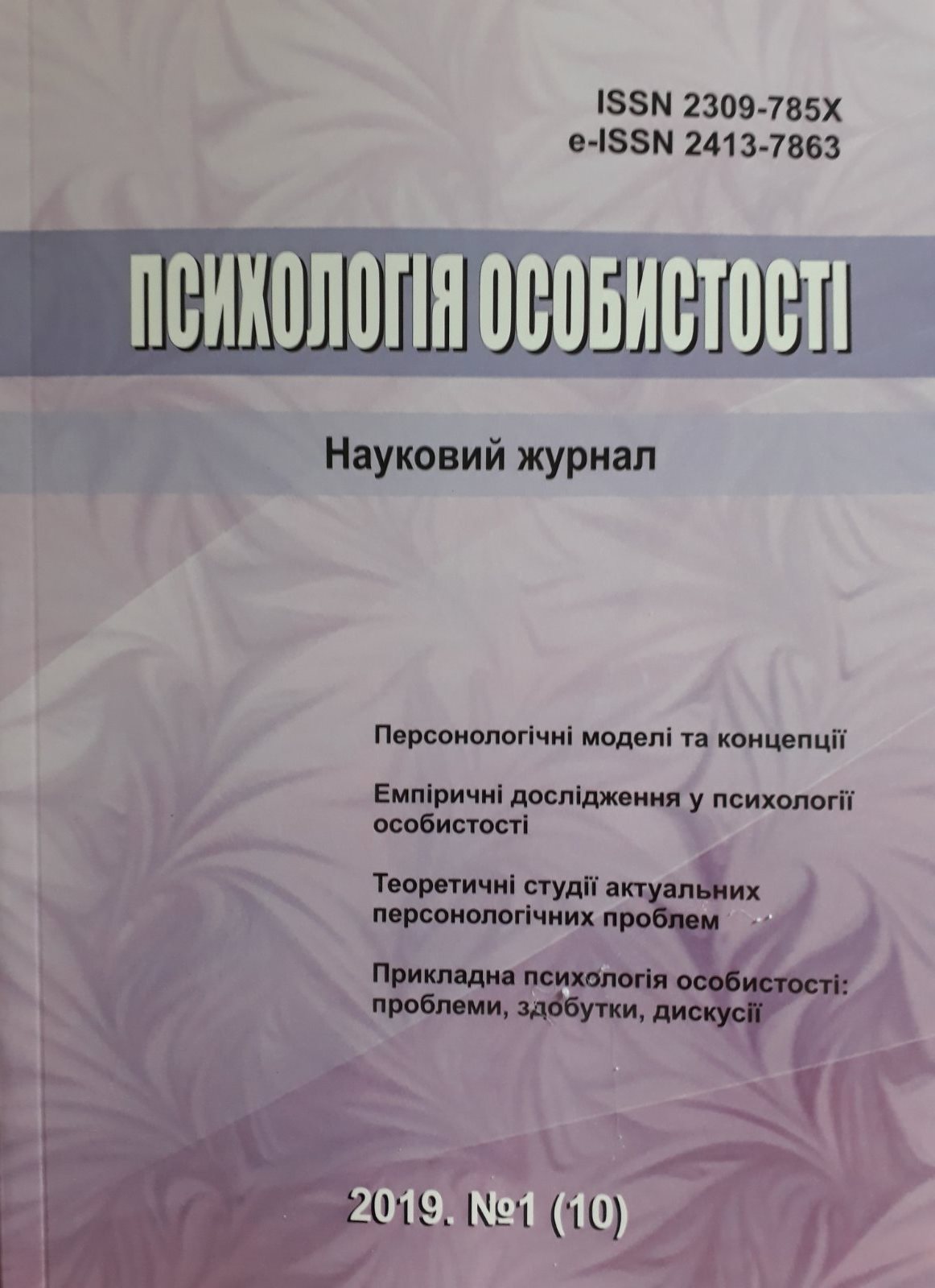AUTONARATIVE AS A MEANS OF RESEARCH AND REORGANIZATION OF THE PATIENT’S LIVING WAY
DOI:
https://doi.org/10.15330/ps.10.1.227-234Keywords:
psycho-hermeneutics, autonarrative, syntagm, traumatic experience, patient, type of attitude to diseaseAbstract
The article presents results of theoretical and empirical study of possibilities of autonarrative in the diagnosis of patient’s personality pecularities and life path in the situation of traumatic experience. It has been found out that the main directions of researches are built around the consideration of autonarrative by means of constructin the inner meanings of personality and exploring it as a way of presenting the personality’s inner life.Groups of patients by type of attitude to the disease are described: conditionally adaptive, intrapsychic desadaptive, interpsychic desadaptive. For results of empirical study was made a classification of autonarratives according to the emotional expression in them. The qualitative and quantitative analysis of the empirical data obtained is carried out. The most rational and positive attitudes were autonarratives of patients with conditionally-adaptive type of disease. In the group of patients with intrapsychic desadaptation emotionally-neutral and emotionally-negative autonarratives predominate. Autonarratives of emotionay- negative and rational type are characteristic for the group with interpsychic desadaptation. Thus, thesignificant indicators for the reorganization of a traumatic event in patient’s autonarratives are: 1) the level of cognitive processing of the event (rationalization), 2) the positive / negative emotional background of perception of the traumatic event, and 3) the presence of positive expectations for the future.The peculiarities of the use of «cognitive" and «affective" syntagms by different groups of patients depending on the type of attitude to the disease are analyzed. It is proved that active attitude to the healing process is reflected in autonarratives and the corresponding psycholinguistic markers are highlighted. Thus, a more constructive for maintaining health is a rational interpretation of the events of life through a conscious comprehension of life and cognitive schemas of reality. The conclusions formulate general directions of psycho-correction work with patients, depending on the type of attitude to the disease and the prospect of further research.

